As National Comic Book Day coincides with Banned Books Week this year, graphic novels find themselves at the center of a nationwide controversy over censorship and educational content. According to recent data from the American Library Association’s Office of Intellectual Freedom, the number of graphic novels facing censorship attempts has skyrocketed in recent years.
In 2023, 378 different graphic novels were threatened with bans or challenges, with a total of 1,020 censorship attempts recorded. This marks a staggering twenty-fold increase from just three years ago in 2020. The most challenged graphic novel of the past year was Maia Kobabe’s “Gender Queer,” followed by “Flamer” by Mike Curato and “Let’s Talk About It” by Erika Moen and Matthew Nolan.
This surge in book banning efforts is largely fueled by BookLooks.org, a website launched in 2022 with ties to the controversial right-wing group Moms for Liberty. Despite claiming not to support banning books, BookLooks has become the primary resource for those seeking to challenge books, especially those dealing with LGBTQ+ themes and sexuality. The site provides downloadable reviews and ratings that are frequently cited in book challenges across the country, reflecting the agenda of groups like Moms for Liberty in targeting diverse and inclusive literature.
A clear pattern emerges when examining the top ten most challenged graphic novels: eight of them are by LGBTQIA+ authors and/or feature queer characters. Additionally, the majority of these titles are either published for young readers or recognized for their appeal to a teen audience.
“It is very frustrating that my book is challenged, and that the language around it is about it not being appropriate for young people, while the book is about myself as a young person,” says Maia Kobabe, author of “Gender Queer.”
According to PEN America, books most frequently banned center reproductive justice issues, including sexual assault, and silence the voices of LGBTQ+ protagonists. Advocates argue this does a disservice to young readers, especially students in rural areas or those who may not otherwise be exposed to identities or experiences that resonate with them.
“This is something that’s already very much a part of their lives,” Scott Berkowitz, president and founder of Rape, Abuse and Incest National Network (RAINN) told The 19th in April. “Pretending that sexual violence is just an adult topic might make some people feel better, but kids know the truth.”
PEN found that 19% of books banned during the 2021-2023 school years depicted rape and sexual assault, many of which were written for young adults.
While Batman, Superman, and other superheroes may be top of mind when thinking about comics, the genres they cover are expansive, ranging from romance to horror to history, and everything in between. This includes an array of reproductive justice-focused stories covering topics from abortion to menstruation and more.
Here is Reckon’s 2024 comic book and graphic novel roundup for readers interested in diving into these themes:
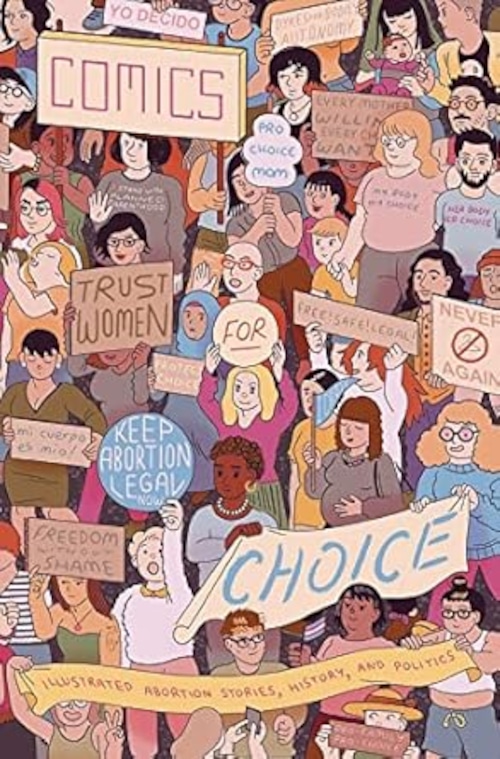
Comics for Choice is anthology of comics about abortion.Alternative Comics
Comics for Choice
Edited by Hazel Newlevant, Whit Taylor, and O. K. Fox
Over 60 artists and writers came together to produce this anthology of comics about abortion. The subject matter spans from abortion herstory to today’s activism and the dilemmas medical professionals face in a post-Dobbs world.
For readers delving into their first experience with a comic or graphic novel, “Comics for Choice” compiles a robust collection to sample different styles of storytelling that still center on the pressing issue of reproductive rights.
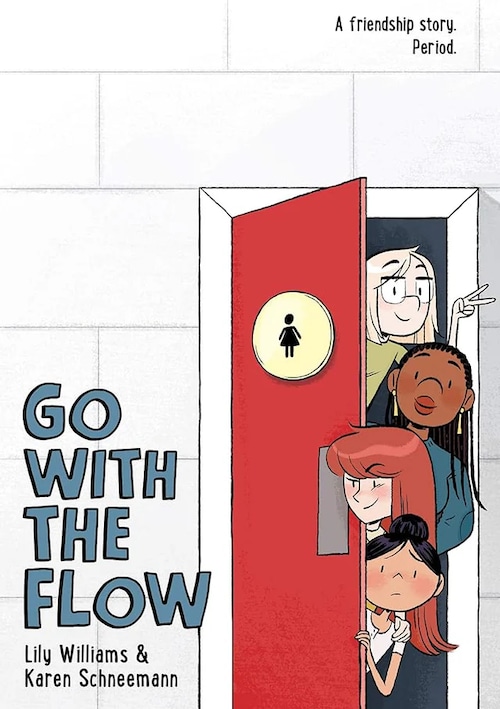
High school students embark on a crash course of friendship, female empowerment, and women’s health issues in Lily Williams and Karen Schneemann’s graphic novel Go With the Flow.First Second
Go With the Flow
By Lily Williams and Karen Schneemann
Catering to middle-grade readers, “Go With the Flow” centers on a diverse group of high school sophomores who are standing up against the patriarchy in their school. The friends band together to demand their school make the needs of menstruators a priority and keep enough tampons stocked for students to use. If this title sounds interesting to you, check out Reckon’s coverage of Black and Latina teens in Chicago who are taking on their schools and cultural norms in real life.
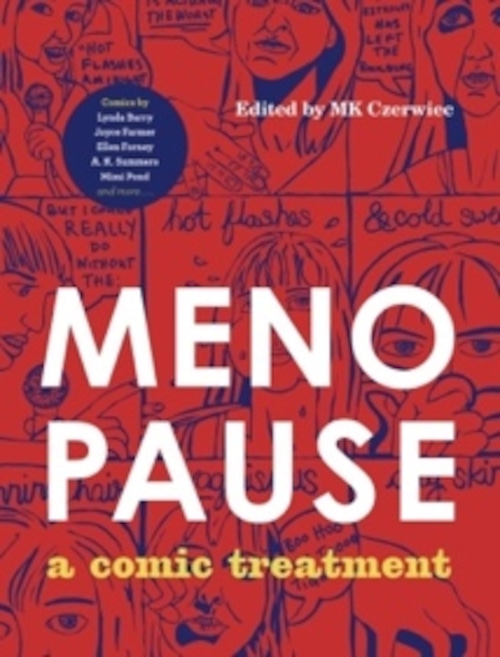
Featuring works by a host of pioneering and up-and-coming comics artists, Menopause is a perfect foil to the simplistic, cheap-joke approach society at large has taken to this much-derided women’s health issue.Penn State University Press
Menopause: A Comic Treatment
By MK Czerwiec
The stigmatization of menstruation paired with society’s unease with aging makes menopause a highly taboo subject. Author and editor MK Czerwiec presents this anthology in opposition to the stereotypical depiction of menopausal and perimenopausal women—often meant to feel ashamed.
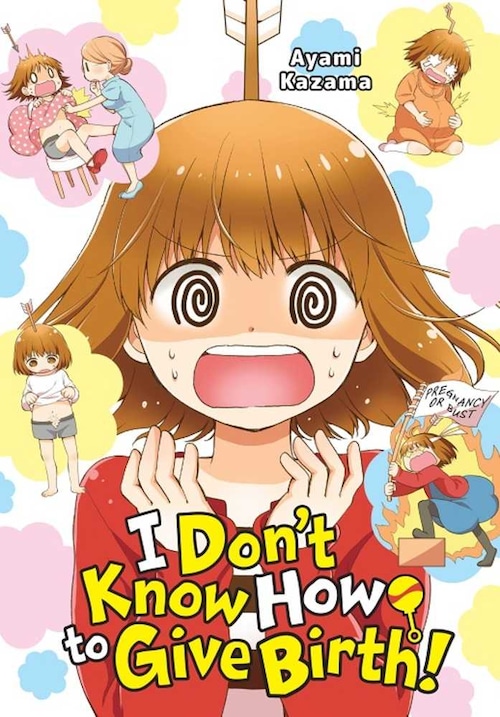
A humorous and heartfelt autobiographical comic essay of a manga artist new to the challenges of motherhood!Yen Press
I Don’t Know How to Give Birth
By Ayami Kazama
This title is self-explanatory, delving into the fears, concerns and curiosity that many people preparing to enter parenthood think and feel. Manga artist Ayamai Kazama approaches this autobiographical comic essay with humor, as she begins her own pregnancy journey and learns what it takes to go through childbirth.
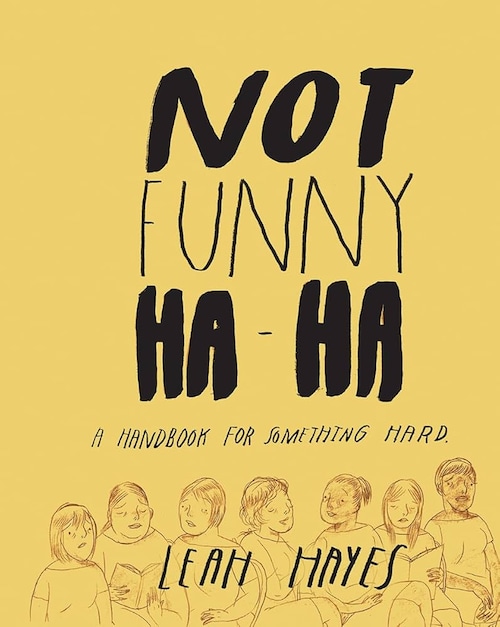
Not Funny Ha-Ha is a bold, slightly wry graphic novel illustrating the lives of two young women from different cultural, family, and financial backgrounds who go through two different abortions (medical and surgical).Fantagraphics Books
Not Funny Ha-Ha
By Leah Hayes
This novel walks readers through the abortion process in a light-hearted but informative way meant to normalize what different experiences can look like. As two young women from different cultural and economic backgrounds experience their version of abortion, one through medication and the other through surgical procedure, readers learn what an abortion looks like if they’ve never had one themselves or the varying circumstances people who have abortions are in through a non-judgmental, humorous storyline.
Because Reckon loves a good reading list, here are some past compilations our team have published in the past:






